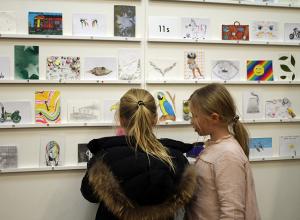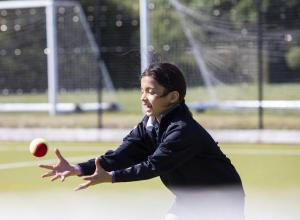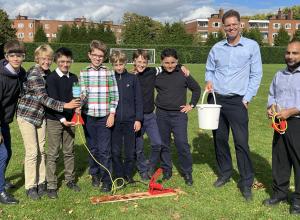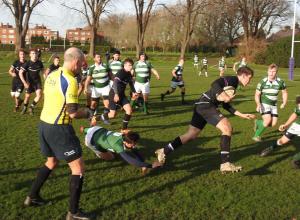
In his latest Pastorally Speaking instalment, Andy Woodward, Deputy Head of Senior School warns of the dangers of overpraising children
Among its many other virtues, Wild Swans, Jung Chang’s epic account of life in Mao’s China, gives a great illustration of why incentive is so important to productivity. She writes of her time working in the fields that ‘the number of work points (a currency equivalent) accumulated depended on how many days one worked, rather than how one worked… this was a massive discouragement to efficiency… we frequently spent ten hours in the fields doing a job that could have been done in five’.
How often, when our own young children brought us a hastily dashed off drawing, below the standard of which they were capable, did we meet it with the assurance that it was 'amazing' or 'brilliant'?
We know this to be true. If our rewards, be they wages, glory or mere acknowledgement from those we wish to please, are truly linked to hard work and distinction, we are thus more likely to work hard and aim to achieve. If they are dispensed cheaply, we may instead find ourselves a comfortable spot to doze. We also, I believe, feel meritocracy to be right. A top grade of 9 at GCSE, awarded to a mediocre candidate, would offend our sense of justice, as much as would a mere 5 given to someone who in reality excelled.
And yet… how often, when our own young children brought us a hastily dashed off drawing, below the standard of which they were capable, or colouring-in characterised by lazy scribble over the lines, did we meet it with the assurance that it was 'amazing' or 'brilliant'? Or, worst of all, ‘you’re so clever!’ – in which we managed, from the start, not only to affirm slipshod work but also to allude to some sense of inherent genius bound to ensure unconditional success. To make the obvious link, if profoundly unremarkable output is treated as remarkable, there is no incentive to do better. We are instead delivering the equivalent of a big tick to the Maths exercise that is not actually correct. Or rather writing an A next to a piece of work meriting only a C. It should be apparent that this would be problematic. If a child believes that C-grade work is A-grade work, why would they try harder or do better? Why improve if they’re brilliant?
Within us all, is the potential to become those X Factor parents – insisting still to camera that their daughter is the next Taylor Swift, and that Simon Cowell knows nothing when he says she sounds more like an animal in pain.
This is not to say we must be negative or discouraging with our children. We should applaud the initiative taken to attempt a task and we should delightedly credit the aspects of it that are good, or that represent an improvement. This draws attention to good practice in the hope we might see more of it. Likewise however, we should point out the bits that are not up to scratch – making clear the ways in which they could be improved and that we hope to see them improved in the next draft! This is the magic formula – a measure of deserved praise alongside us providing the means by which they can attain yet more. Indeed, this is, to use teacher terms, bespoke, targeted feedback – the single most effective thing there is for a child’s learning, according to education guru John Hattie.
All this is part of a wider and all-important life mindset, the realisation that ‘brilliant’, ‘awesome’ and ‘amazing’ are generally to be found a long way off – and that getting there is going to be hard work. No one ever became excellent without a work ethic, a chunk of time, more than a few setbacks and listening to plenty of good guidance from those ahead of them on the trek. We should be realistic about this, starting with us conveying the reality that there are no short cuts. I fear that, within us all, is the potential to become those X Factor parents – insisting still to camera that their daughter is the next Taylor Swift, and that Simon Cowell knows nothing when he says she sounds more like an animal in pain. As we laugh at those characters onscreen, we should pause to consider whether we do likewise in insisting we know better than the relevant professionals that of course our child belongs in the top English set…
We should applaud the initiative taken to attempt a task and we should delightedly credit the aspects of it that are good, or that represent an improvement.
This post is not intended to rein in dreams. Our children (and us too!) are capable of more than we generally dare imagine. But we should certainly give short shrift to any notion that it’s going to be easy or happen overnight. You are, from the start, Head Coach to your own children in their learning journey. And we, the teachers, are in this regard happy to be members of your team. So let’s continue working together under the shared conviction that when and if they do one day receive those sought-after results, trophies, rounds of applause and pats on the back, they will be both well-earned and genuinely well deserved.
Please feel free to provide feedback to awoodward@harrodian.com







